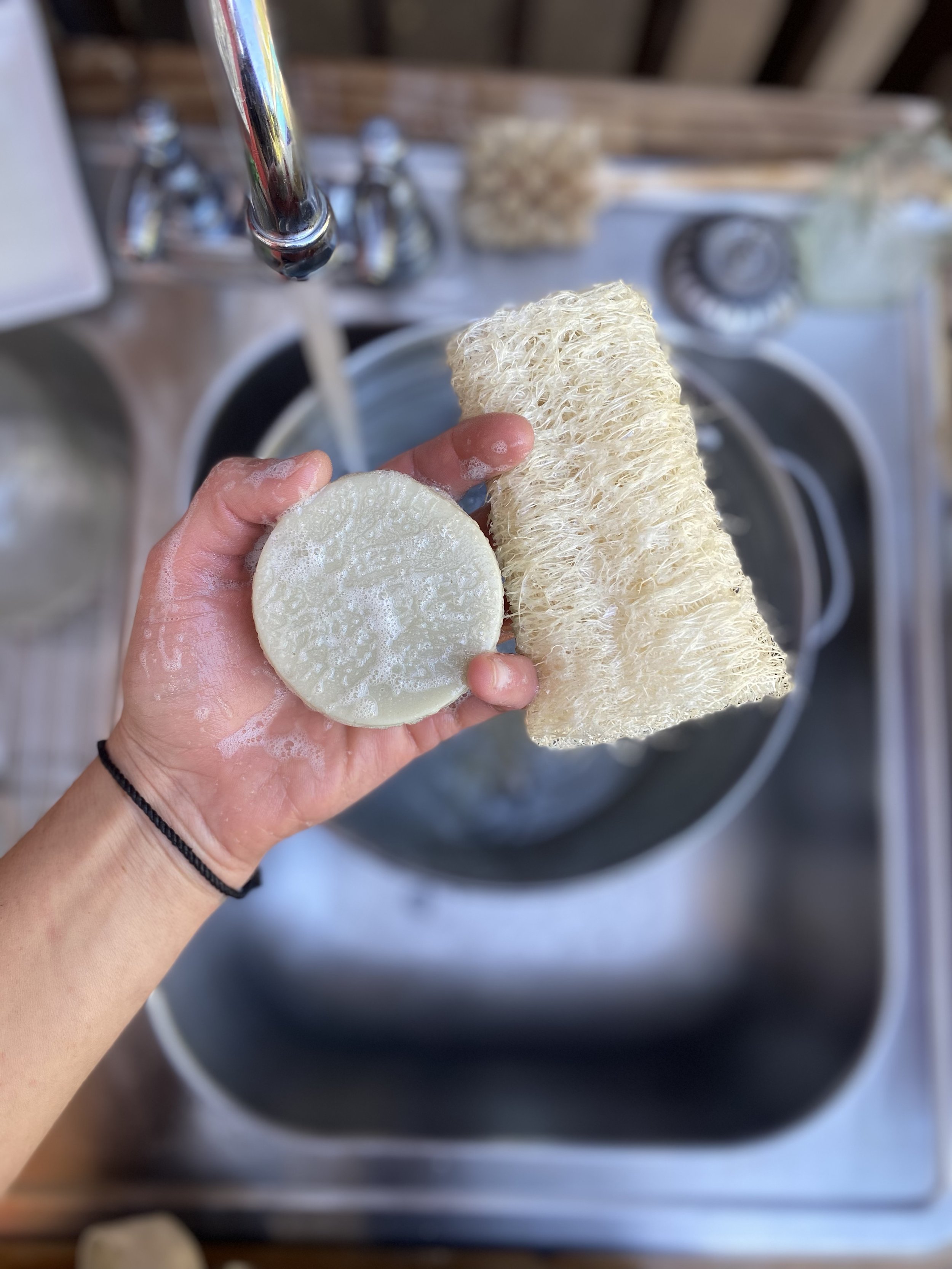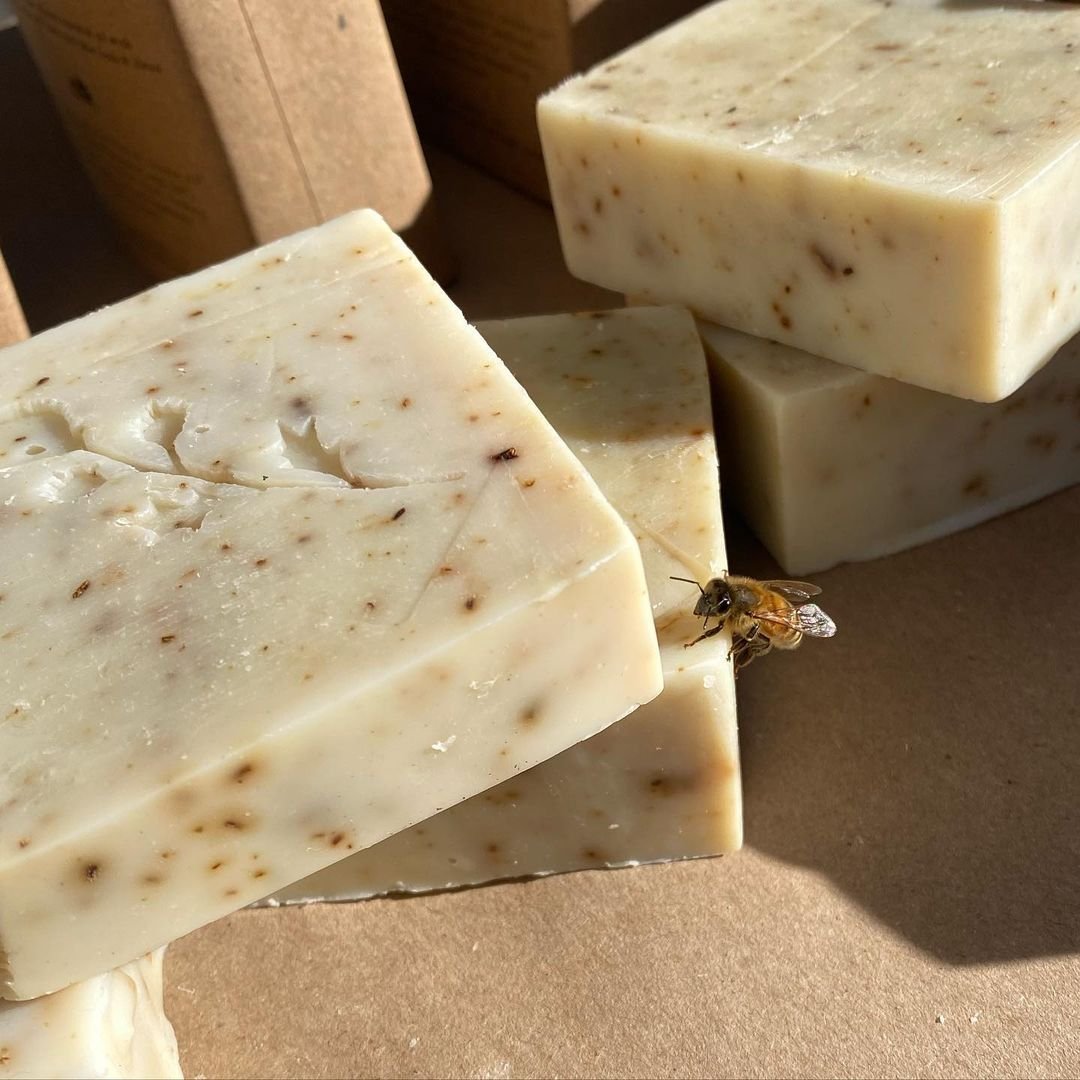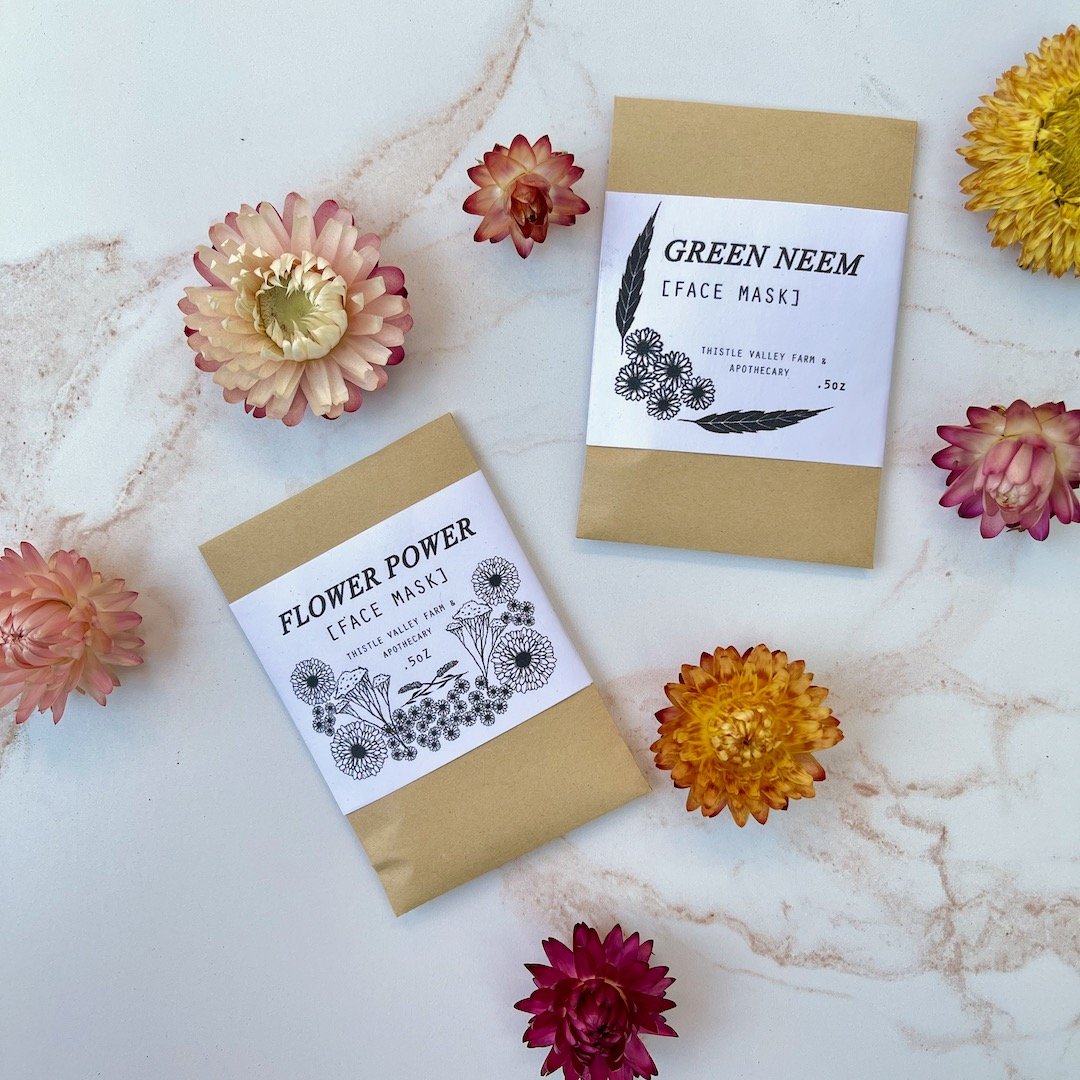Mel Garcia was inspired to start Thistle Valley Farm & Apothecary by a chemistry course and a dive into lower-waste and less impact living. “As I began to farm and garden I found great inspiration connecting the process back to the soil, land, and seasons.” Mel uses the cold-process method to create Thistle Valley soaps. This process involves heating oils and adding a base, sodium hydroxide, which she does in her workshop and sets to cure for about 4 weeks. To create face masks, Mel dries and processes flowers on the farm. Once they’re dried, the flowers are added to a clay base that Mel sources from Mountain Rose Herbs in Oregon. All the flowers and herbs added into the products are grown in Mel’s garden plots and are also harvested, dried, and processed by hand.
Mel often gets inspiration for her products from walking around and seeing a plant she’d like to use. From there, it can take as short as a month to produce a product and get it out, or if she’s creating a new recipe, trials and testing can last about six months. Mel’s favorite part of the process is also the most challenging part, growing and tending the plants. “It's a balance of challenge, reward, feedback and learning,” she says.
All of the soaps created by Thistle Valley are readily biodegradable and any packaging is minimal and compostable. We love Mel’s commitment to creating plant-based goods that work well and have little impact on the environment. You can find Thistle Valley Farm & Apothecary’s solid dish soap and face masks in store and online.




